You are about to leave ChooseUHIV.com

Choose Your Care
People featured are compensated by Gilead Sciences, Inc.
Choose You Care

People featured are compensated by Gilead Sciences, Inc.
Although HIV treatments cannot cure HIV, they can offer important health benefits.
Beginning HIV treatment as soon as possible is one part of choosing you. Starting and staying on HIV medication helps you get to undetectable, which means there is so little virus in the blood that a lab test can’t measure it. HIV treatments provide other important health benefits, including reducing the damage HIV does inside your body and improving your long-term health outcomes.
When considering your HIV treatment options there are several questions you may want to consider asking your healthcare provider, including how medicines work; what side effects to expect; whether people like you were included in clinical trials; what is HIV drug resistance and how it may impact your treatment options?
Drug resistance plays an important role in treatment decisions. Talk to your healthcare provider about what resistance means and the importance of taking your treatment as prescribed.
HIV can develop something called a resistance mutation. Sometimes, HIV can already have a resistance mutation when the virus is transmitted, or it can develop while someone is on treatment if the medication is not taken as prescribed or due to other factors. When this happens, some HIV treatments may not work as well.
Taking your HIV treatment as prescribed can help lessen the risk of resistance. Missing doses of HIV treatment can lead to less medicine in the body and allow HIV to multiply, which increases the risk of a resistance mutation developing.
Talk to your doctor about an HIV treatment that’s right for you for the long-term.
Learn more about different aspects of HIV care and living with HIV by clicking the icons below.
Everyone’s way of life is different.
Some of us like the excitement of a big city. Others prefer life in the country. Some love traveling, going to the theater or attending live concerts, partying, and meeting new people. While others prefer a more contemplative and quiet life at home alone, or surrounded by family, reading a great book, trying a new recipe, completing a puzzle, or binge-watching the latest TV series. Whatever your preferences, hobbies, or choices, living with HIV should involve working with your healthcare provider to choose a treatment that’s right for you.
Ask your doctor how your treatment can work with your life:
What does the dosing for HIV treatment look like and how can I stay on track?
How does keeping up with treatment benefit me, my partner, and my community?
What kind of side effects can I expect from HIV treatment?
Can HIV treatment be taken along with other medications?
How can I expect HIV treatment to affect my body now and as I age?
Hear more from people living with HIV below:

People featured are compensated by Gilead Sciences, Inc.
Daria – Diagnosed in 2004, Milan, Italy:
“Now, HIV is part of our life, it's really normal. I do something with my daughter each morning during breakfast, I take my pills, and to her it's normal that mommy takes pills. It’s important to normalize HIV for women and mothers.”

People featured are compensated by Gilead Sciences, Inc.
Javier – Diagnosed in 2014, Madrid, Spain:
“I swim every day, and once I go from work to the swimming pool I jump in with my friends, my teammates, and it’s the best part of my day. It may seem like an individual sport, but we’re a team. We are family. It’s like you forget all the problems that you have, all the worries. It's a moment of freedom, a moment of reconnection with yourself.”

People featured are compensated by Gilead Sciences, Inc.
Sandro – Diagnosed in 2005, Bologna, Italy:
“I live with HIV, so it’s my everyday life. I have to manage the infection every day. I am a patient, but I am also an activist. I have spent my life fighting HIV, creating a community of people living with HIV in Italy.”
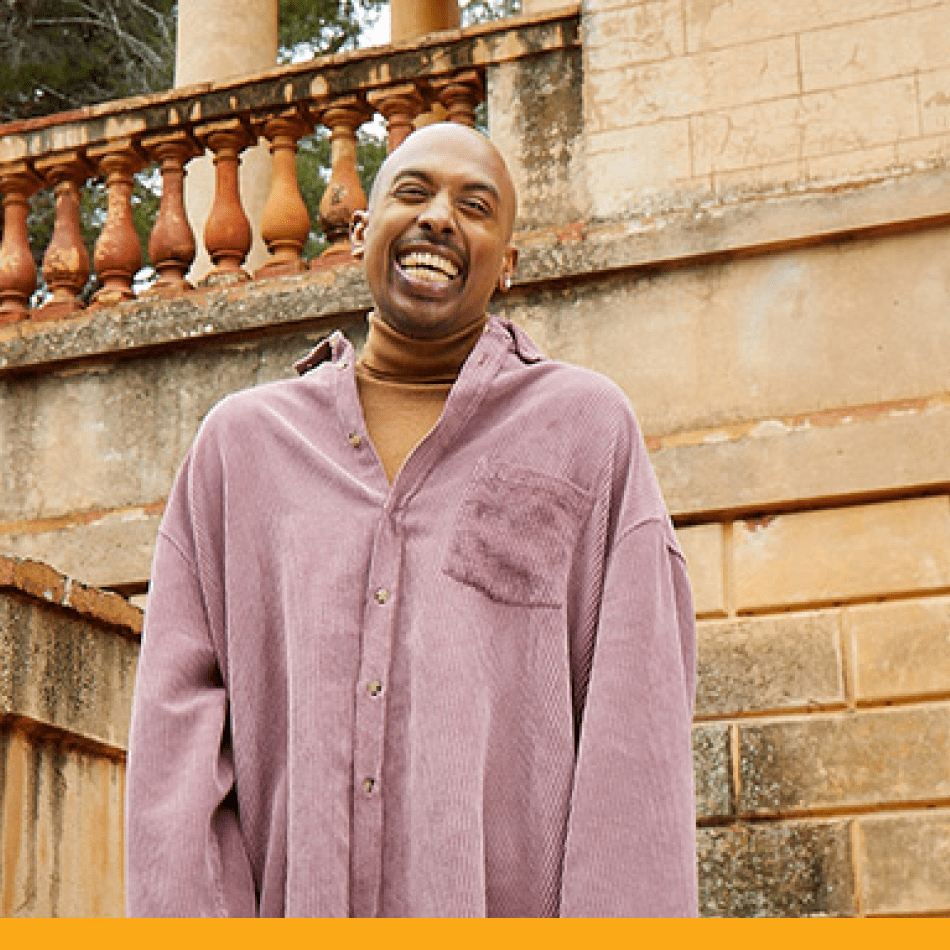
People featured are compensated by Gilead Sciences, Inc.
Joshua – Diagnosed in 2015, London, England:
“I think just to go out there and be yourself and have fun, there’s nothing to be fearful of. I think you don’t have to follow the crowd, you can be your own self. You don’t need to be a follower. You can just be you and just take the day each day that comes and enjoy it.”

People featured are compensated by Gilead Sciences, Inc.
Kim – Living with HIV since 1986, Brooklyn, New York:
“Every experience I've had has shaped me to be who I am today, and I do value that.”
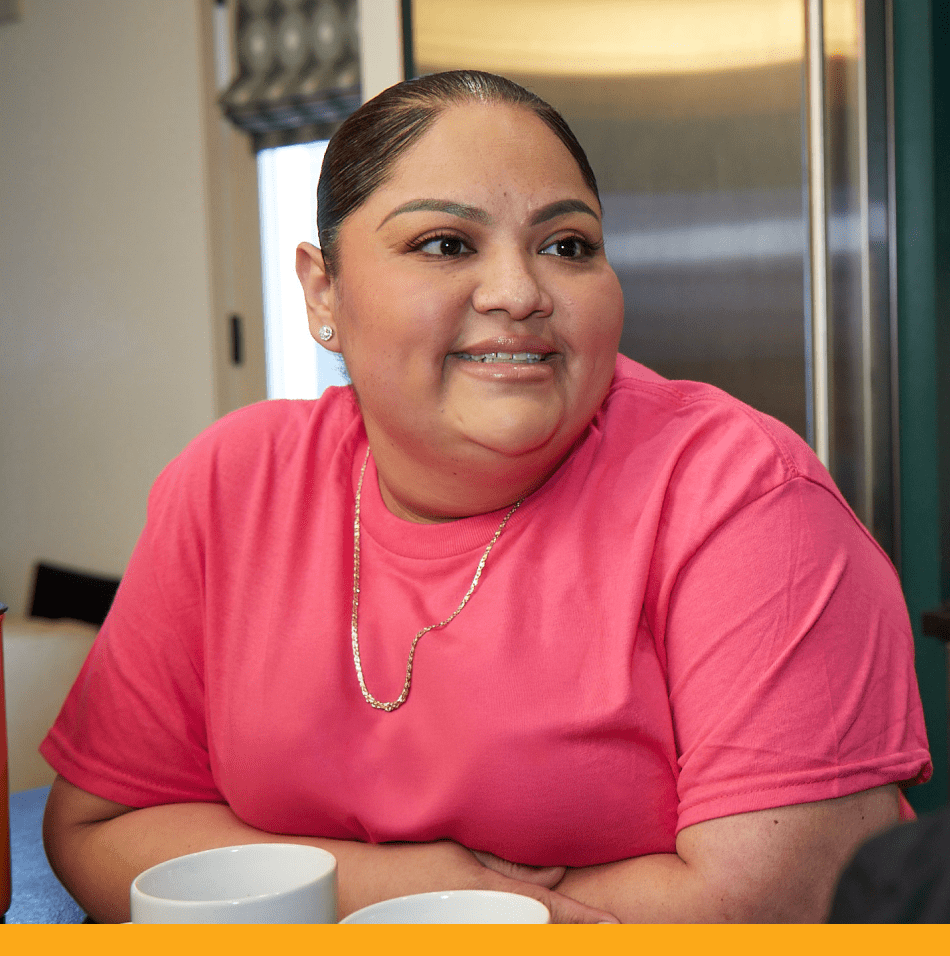
People featured are compensated by Gilead Sciences, Inc.
Marilynn – Diagnosed in 2006, Arlita, California:
“HIV is not who I am. I'm so much more than that.”
HIV can develop something called a resistance mutation.
When this happens, some HIV treatments may not work as well. Sometimes, HIV can already have a resistance mutation when it’s transmitted, or it can develop while someone is on treatment if the medication is not taken as prescribed or due to other factors.
Taking your HIV treatment as prescribed can help lessen the risk of resistance. Missing doses of HIV treatment can lead to less medicine in the body and allow the virus to multiply which increases the risk of a resistance mutation developing.
Treatment options can be more limited for people whose HIV contains or develops a resistance mutation. But there are treatment options that can continue to work even if HIV develops resistance to certain types of HIV medicines. Your healthcare provider can help determine the right HIV treatment for you.
There are ways you can help lower the risk of resistance. Remember to take your treatment as prescribed. It’s also helpful to talk to your healthcare provider about your treatment’s barrier to resistance. A medicine’s barrier to resistance refers to how well it can work even if the virus develops a mutation.
Talk to your doctor about resistance:
How can resistance occur?
What is a barrier to resistance?
Is resistance reversible?
Has the virus in my body already developed resistance?
Hear more from people living with HIV below:
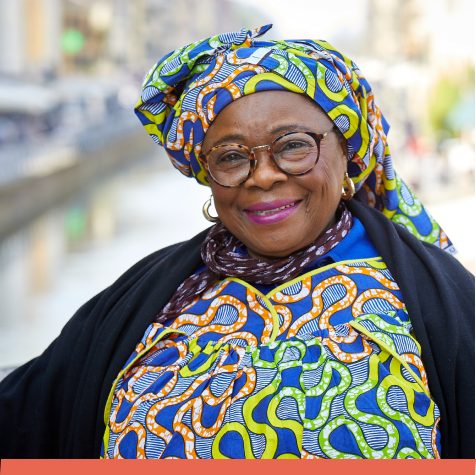
People featured are compensated by Gilead Sciences, Inc.
Monique – Diagnosed in 1992, Brussels, Belgium:
“African women don't listen to the doctor. The doctor, if he wants to make good relationship with this African woman, he has to try to understand the culture of this woman. I often have to dispel myths. What is there inside when the doctor says, ‘Don't abandon your medication, otherwise you can die.’ African woman, they say, ‘No, I went to my church. I prayed. I'm okay. I don’t need to take it.’”

People featured are compensated by Gilead Sciences, Inc.
Morris – Diagnosed in 2006, New Orleans, Louisiana:
“I've seen people change how they think about HIV because of my story. I've seen people who chose themselves. I've seen somebody who became resistant, and I've been resistant to medicine as well. But we keep going and, and it all, that all has to do with the knowledge that I have.”
In Choosing You there is nothing more important than caring for your physical, emotional, and mental well-being.
For people living with HIV, electing to focus on your long-term health is a powerful and transformative choice. Prioritizing your well-being can help you safeguard your health by making informed choices that may benefit your body and mind. Being involved in decisions about your treatment can bring lots of benefits too.
Physical Well-Being
Caring for your body means making choices to maintain a healthy, strong, and functional body. This includes maintaining some type of physical activity (e.g. walking, swimming, etc.), good nutrition (e.g. eating a balanced diet), the right amount of sleep to rest the body, and good hygiene to avoid illness or exposure to infections. It is also important to stay up to date on immunizations, see your doctor for regular checkups, and consult with your doctor about the medications you take. For example, talk with your doctor to make sure you are on HIV medication that doesn’t interact with other medicines you may be taking.
Emotional & Mental Well-Being
A healthy mind is all about how you think, feel, and act. Prioritizing your emotional and mental well-being is as important as taking care of your body and has an impact on your social life and personal relationships, how you cope with life challenges, feeling purpose in life, having goals, self-confidence, and self-esteem.
Questions to ask your healthcare provider when discussing HIV treatment options:
What kind of side effects can I expect from HIV treatment?
Can HIV treatment be taken along with other medications?
How can I expect HIV treatment to affect my body now and as I age?
Hear more from people living with HIV below:

People featured are compensated by Gilead Sciences, Inc.
Salvio – Diagnosed in 2018, Bologna, Italy:
“I see a personal path of growth and really getting more and more empowered. HIV can lead you to feel lonely. But this stops when you find your voice and don't give this secret a lot of power. And you take this power back by taking your voice and speaking up with your friends, with your sexual partner, with your colleagues. But once you do that, you realize that maybe it was more stigmatizing for you than for other people.”
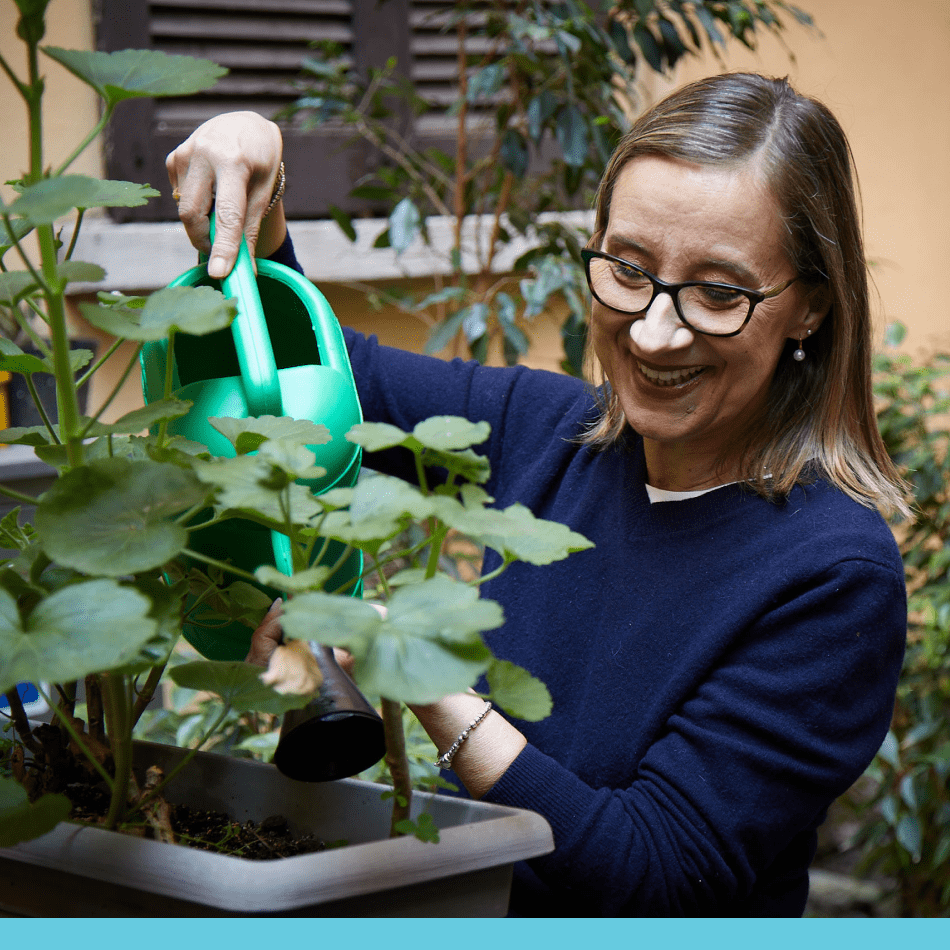
People featured are compensated by Gilead Sciences, Inc.
Nicoletta – Diagnosed in 2015, Milan, Italy:
“We are persons that live with HIV, and we have the right to live like other persons with a high quality of life.”
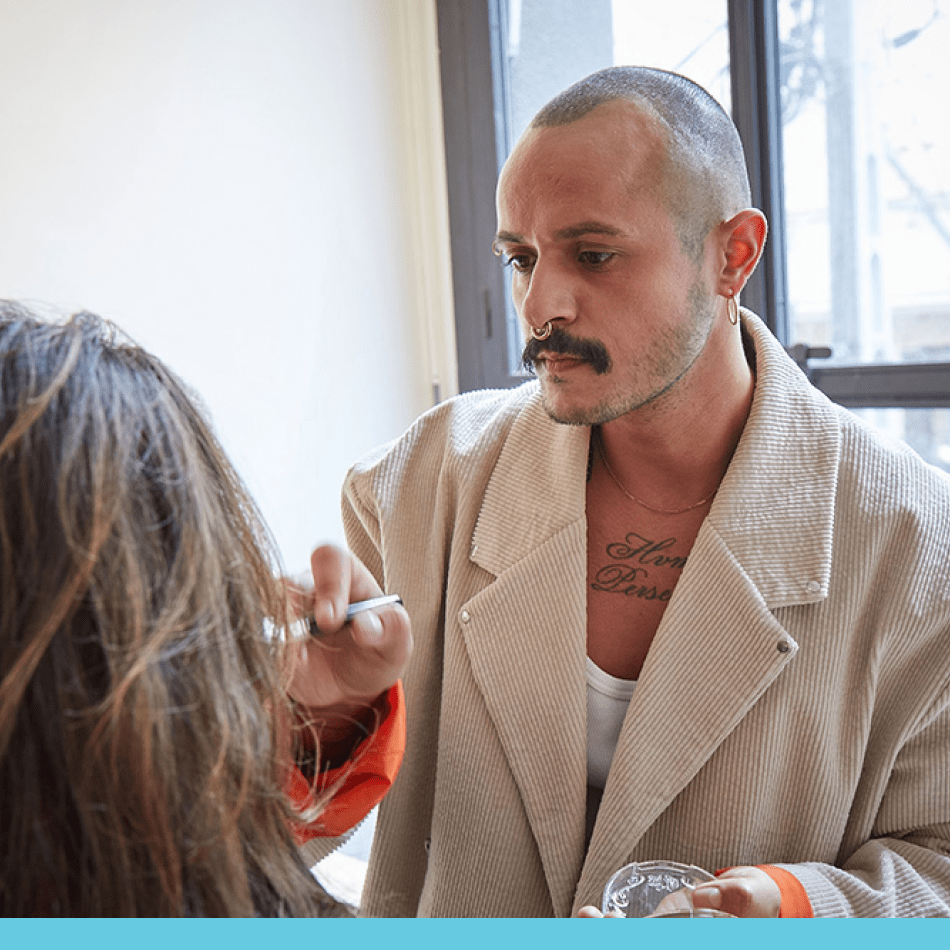
People featured are compensated by Gilead Sciences, Inc.
Ahmed – Diagnosed in 2016, Berlin, Germany:
“Being an artist helped me in my journey because I could express myself through art, makeup, and hairstyles – crazy and creative stuff. That helped empower my strength in the person who I am.”

People featured are compensated by Gilead Sciences, Inc.
Joyce – Diagnosed in 1994, Columbia, South Carolina:
“Everything that I learned, I took it back and fed to my family, you know to even know that this is how you get HIV. These are the things that you need to do to protect yourself. Every little boyfriend or girlfriend, I need you to catch them by the hand and say, ‘Come on, we going to the health department and we going to get checked from the rooter to the tooter. Okay?’”

People featured are compensated by Gilead Sciences, Inc.
Kim – Living with HIV since 1986, Brooklyn, New York:
“I'm going to talk about what's not right for me. I'm going to advocate when something's not right. I'm going to take that time and practice what they call self-care, but what that looks like for me. So always putting me first, and then I could think about somebody else.”